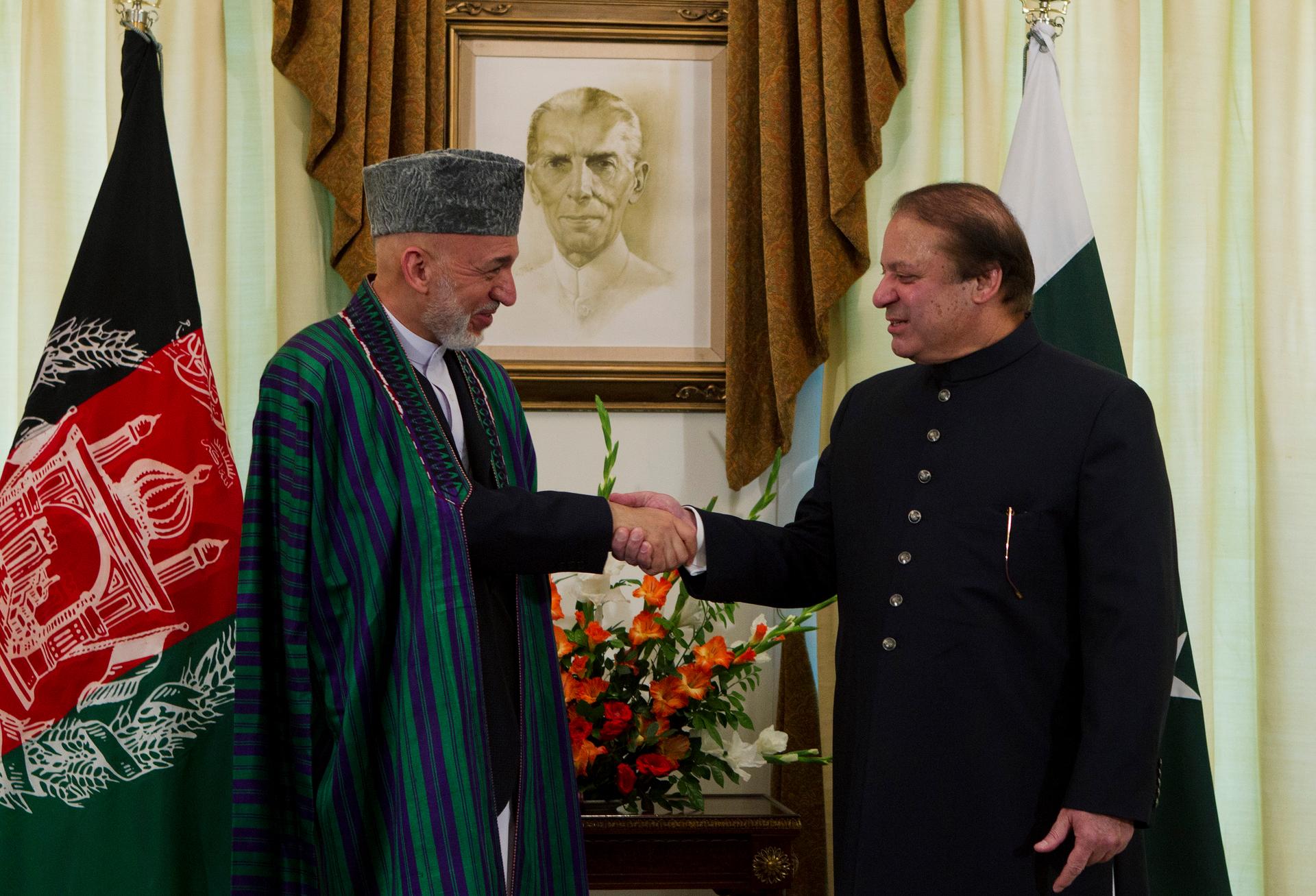Here’s why the US dance with Iran will ultimately affect Afghanistan and Pakistan
Afghan President Hamid Karzai shakes hands with Pakistan’s Prime Minister Nawaz Sharif at the prime minister’s residence.
The Obama administration is pushing back against criticism of its nuclear agreement with Iran, arguing that the deal is just a first step.
"Our diplomats and experts will be at the negotiating table working to achieve this final, comprehensive agreement that addresses all of our concerns, and [those of] our friends Israel, Saudi Arabia, the Arab Emirates, others. The whole world has an interest in making sure this is a peaceful program," Secretary of State John Kerry said in a State Department video uploaded to YouTube Tuesday.
Two countries, however, are missing from that list of nations. Afghanistan and Pakistan.
The two countries are stacked next to each other on the eastern border of Iran and have been central to US foreign policy since the Sept. 11 terrorist attacks a dozen years ago. But, as US and western powers bargain with Iran, a shift in relations there could mean great changes for those two countries that have been a focus for US officials.
"Afghanistan and Pakistan have been a declining interest for the United States," said Vali Nasr, dean of the Johns Hopkins School of Advanced International Studies. "The United States is set to leave that region and might feel more comfortable doing so … if US-Iranian relations start to stabilize."
The terms of that withdrawal have been contentious, with US and Afghan officials just recently announcing a deal to keep some US troops in the country past the planned departure date in 2014. But recent developments may have led Afghan President Hamed Karzai to reconsider the deal — or at least try to get more out of it.
National Security Advisor Susan Rice met with Karzai Monday to discuss signing the deal. But Karzai refused to the sign.
"She went there because the security deal is at peril," Nasr said. "Karzai is playing politics with the future of the United States in Afghanistan. He's casting doubts on whether or not the plans for a US departure in 2014 will be as we thought they would be."
The closer the US and Iran get to improving relations, the less influence Karzai will likely have, said Nasr.
The Obama administration "might have more latitude in telling Karzai that if he doesn't play by what he agreed to with the United States, then we may very well wash our hands of Afghanistan given that we have better relations with Iran," Nasr said.
Regardless, Nasr believes Afghanistan will ultimately benefit. "If Iran's role in Afghanistan and Pakistan becomes formalized and approved by the international community, then that benefits stability in those two countries."
Every day, reporters and producers at The World are hard at work bringing you human-centered news from across the globe. But we can’t do it without you. We need your support to ensure we can continue this work for another year.
Make a gift today, and you’ll help us unlock a matching gift of $67,000!
